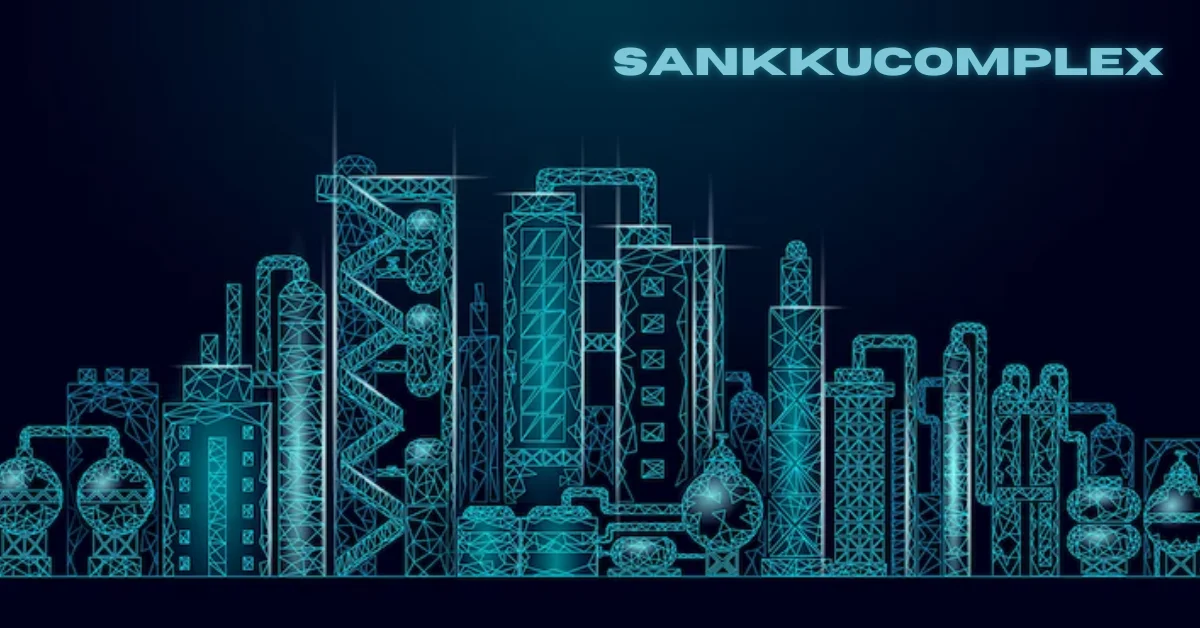
In the vast tapestry of digital and cultural expressions across the globe, new terminologies often emerge from niche communities, urban slang, or cross-cultural adaptations. One such intriguing term that has captured attention in online discussions and among subcultural enthusiasts is Sankkucomplex. Though it may not yet be part of mainstream lexicons, this concept seems to fuse layers of psychological, emotional, and even sociocultural meaning—inviting exploration of its roots, significance, and implications.
Table of Contents
ToggleOrigins of the Term
The word Sankkucomplex appears to be a portmanteau or a stylized coinage, likely derived from two parts: Sankku, a Japanese slang term used to denote “single” (derived from the English word “single”), and complex, indicating a psychological condition or emotional framework. Thus, Sankkucomplex can be roughly interpreted as a “complex about being single” or an intricate set of feelings, behaviors, and thoughts associated with prolonged singleness, especially in a society that values relationships or social conformity.
In East Asian cultures, particularly in Japan, being single beyond a certain age often carries social stigma. The cultural pressure to marry, raise a family, and adhere to traditional timelines creates stress for many individuals. Within such a context, Sankkucomplex may describe not just the state of being single, but the internal conflict and social dissonance that accompanies it.
Psychological Dimensions
On a psychological level, Sankkucomplex encapsulates an internal struggle that arises when someone identifies too deeply with their single status in a negative light. It is not merely the experience of being without a romantic partner—it’s the anxious introspection, feelings of inadequacy, or societal alienation tied to that experience. Individuals with this complex may often feel insecure, constantly compare themselves to peers in relationships, or experience a fear of being “left behind.”
This condition can manifest in two extremes:
-
Hyper-Defensiveness: Where the individual outwardly claims pride or joy in being single, while internally suffering from the desire for companionship. This creates a kind of emotional dissonance and can lead to withdrawal or cynicism about relationships.
-
Desperate Conformity: Conversely, others may plunge into dating or forced relationships simply to escape their single status, thereby potentially compromising their personal standards, happiness, or mental health.
Both responses highlight how Sankkucomplex is not about singleness per se, but how a person perceives and reacts to that status based on external and internal pressures.
Social Media and the Digital Mirror
The advent of social media has intensified the Sankkucomplex. In a digital world where curated images of coupledom, weddings, anniversaries, and family milestones dominate timelines, individuals dealing with this complex are often subjected to a daily barrage of what society deems “success” in personal life.
Platforms like Instagram, Facebook, and TikTok serve as visual amplifiers of relational achievements. For someone grappling with Sankkucomplex, each scroll can feel like a reminder of what they lack, triggering emotions ranging from envy and sadness to resentment and self-doubt.
Moreover, online dating apps, while ostensibly designed to alleviate loneliness, can exacerbate this complex when users face repeated rejection, ghosting, or superficial encounters. The very tools meant to connect people can instead deepen feelings of isolation or fuel the belief that they are fundamentally unlovable or unchosen.
Cultural Interpretations and Gender Roles
In cultures with strong familial and communal structures, such as in Japan, South Korea, China, and even parts of South Asia, Sankkucomplex often intersects with rigid gender expectations. For instance, women may face criticism for prioritizing careers over marriage, while men may be stigmatized for not providing a stable family structure by a certain age.
In this context, Sankkucomplex can reflect broader societal dysfunctions rather than individual inadequacies. It is the byproduct of a cultural framework that ties personal worth to relational status, neglecting the value of autonomy, self-discovery, or nontraditional lifestyles.
Interestingly, with the rise of feminist discourse and men’s mental health awareness, some communities are beginning to reevaluate these narratives. Movements encouraging independence, self-love, and non-linear life choices challenge the shame that often fuels Sankkucomplex. Yet, the internalized voices of societal judgment are difficult to silence overnight.
The Duality of Modern Romance
Modern romantic landscapes are paradoxical. On one hand, people have more freedom than ever to choose if, when, and how they want to engage in relationships. On the other hand, this freedom is accompanied by a rise in commitment issues, relationship fatigue, and even loneliness epidemics in urban societies.
Sankkucomplex is emblematic of this tension. It reflects the modern person’s dilemma: a yearning for deep connection in a world that often rewards independence, fluidity, and self-sufficiency. The conflict between wanting intimacy and fearing its risks is fertile ground for such a psychological complex.
Additionally, hookup culture and digital flirtation often provide fleeting validation but lack the emotional grounding that resolves deeper longings. Individuals may seek temporary escapes from Sankkucomplex through casual dating, yet find themselves returning to square one emotionally, still burdened by the underlying fear of long-term aloneness.
Coping Mechanisms and Healing Paths
Like any psychological challenge, Sankkucomplex requires acknowledgment and compassionate introspection. Some effective strategies to navigate and overcome its effects include:
-
Self-Compassion: Understanding that being single is not a failure but a phase, a choice, or simply one dimension of a multifaceted life.
-
Reframing Narratives: Replacing internalized stories of inadequacy with affirmations of growth, autonomy, and personal worth.
-
Therapeutic Support: Seeking therapy to uncover root causes, challenge harmful beliefs, and develop healthier relationship models.
-
Community Building: Finding like-minded individuals who embrace alternative lifestyles or value emotional well-being over societal conformity.
-
Creativity and Expression: Writing, art, music, or other creative outlets can help externalize inner conflicts and foster healing.
-
Setting Intentions Rather Than Timelines: Focusing on the kind of relationship one wants, rather than the urgency of acquiring one.
The Future of Relationship Paradigms
As societies evolve, so too must their definitions of happiness, success, and love. The existence of terms like Sankkucomplex signals a need for collective reflection. Are we supporting individuals in all life stages, or perpetuating ideals that harm more than help? Can we celebrate singleness as a valid, fulfilling path rather than an undesirable in-between state?
In the future, emotional education, inclusive media narratives, and deconstructing toxic relationship expectations could help diminish the prevalence of Sankkucomplex. By creating room for diverse expressions of love—romantic or otherwise—we open space for a healthier, more inclusive emotional ecosystem.
Final Thoughts
Sankkucomplex may be a relatively obscure term for now, but it represents a very real and growing emotional experience among modern individuals. Whether due to societal pressure, personal insecurities, or cultural narratives, many people navigate the terrain of singleness with silent burdens. By naming, exploring, and deconstructing this complex, we take the first step toward healing it—not just individually, but collectively as a culture that learns to value presence over partnership, and peace over pressure.
About the Author
admin
Administrator
Welcome to our guest post platform — your destination for insightful, high-quality content from contributors around the world. I'm Qasim Malik, the admin behind this initiative, committed to building a diverse space where voices from various industries, interests, and backgrounds come together. Our mission is simple: to empower writers, bloggers, and thought leaders by giving them a platform to share their expertise, opinions, and stories. Whether you're a seasoned expert or a passionate beginner, our site welcomes you to publish and connect with a wider audience.





